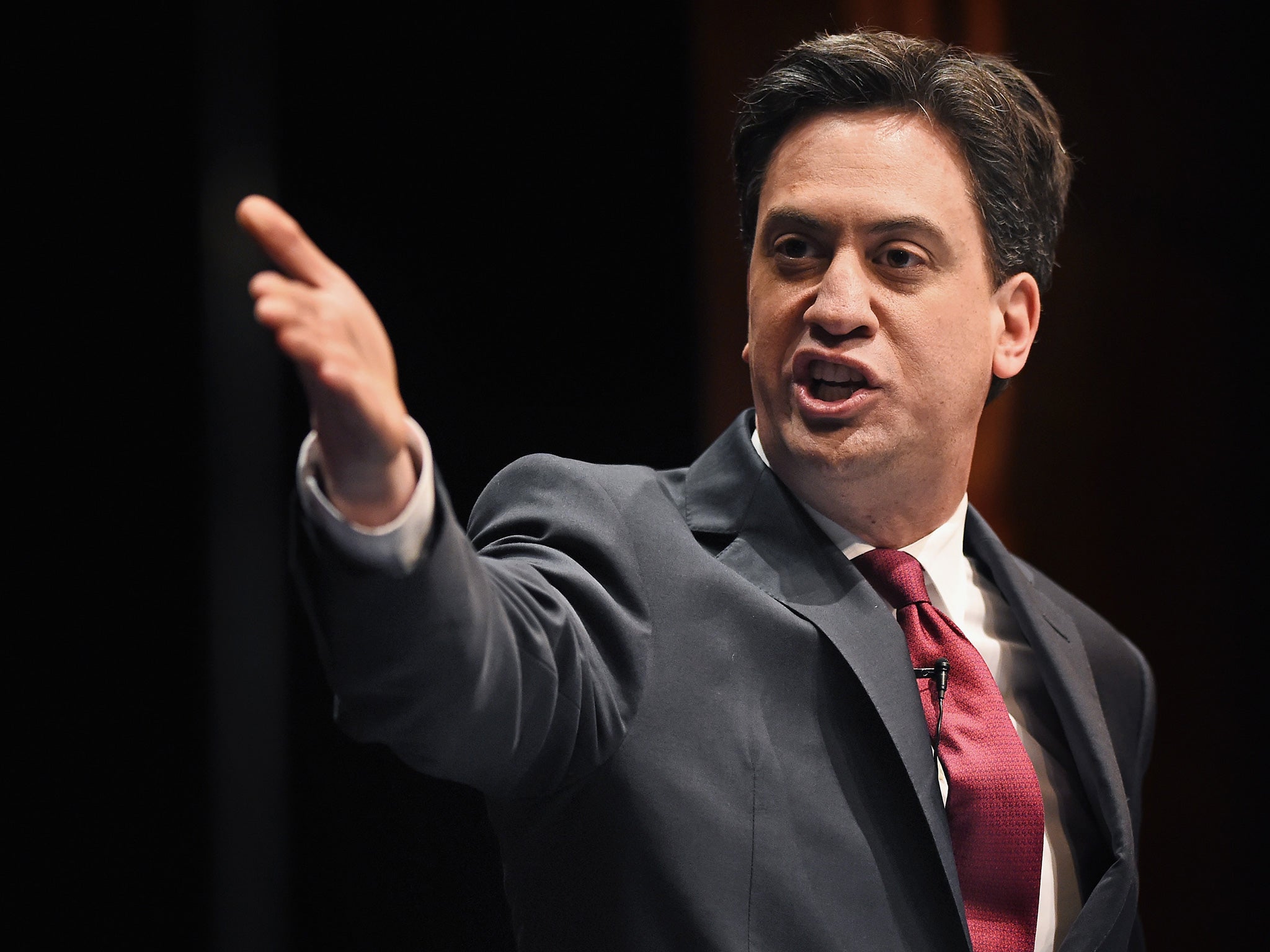Keeping an open mind on Ed Miliband isn't easy
A politician who makes such superficially popular promises will be found out


We were reminded of one of Terry Pratchett’s great lines last week: “The trouble with having an open mind, of course, is that people will insist on coming along and trying to put things in it.” I try to keep an open mind about Ed Miliband, but he keeps coming along and putting things in it. Last week, he returned to the scene of one of his worst ideas, that a government bureaucracy should set gas and electricity prices.
This time, he had to cover his embarrassment over the drop in oil and gas prices since he promised to freeze them, and said he would cut them by 10 per cent more. I think this is as much a false promise as his so-called cut in tuition fees, which would benefit only those students who go on to well-paid jobs – “with the very highest earners benefiting the most”, according to the Institute for Fiscal Studies.
My view is that a politician who makes such superficially popular promises will be found out, usually before an election. The only reason the Liberal Democrats’ tuition fees promise survived the last election was that no one expected them to be in government. I assume that Labour support will drop like the oil price when voters have to choose between David Cameron and Miliband as prime minister.
But that is the point about an open mind. You have to try to keep it open. So, let me try. Let me try to imagine the story of how Labour support holds firm or increases, or Tory support declines, between now and 7 May. We could start with our ComRes poll today, which has two findings that should worry the Tories. One is the “right direction, wrong direction” question. Overall, 37 per cent agreed that “Britain is going in the right direction”, but 46 per cent say “wrong direction”. In America, a similar question, about whether the country is on the right or wrong track, is said to be a good predictor of elections. Perhaps it is here.
The other ComRes finding is that, by a two-to-one margin, voters agree that, “given the current state of the Government’s finances, the Government can slow the pace of cuts to public spending”. That is one of the central questions of the election campaign. Many voters are tired of what I prefer not to call “austerity” (it seems an insult to those who had to live through real austerity after the war) and are worried about the state of public services – even if spending on the NHS and schools is protected by Conservative election promises.
Two weeks ago in this space I wrote that George Osborne has some scope in this week’s Budget to soften the contours of the cliff-like descent of planned public spending over the next five years. In particular, he will make sure that no one will be able to compare spending levels as a share of national income to those in the 1930s.
But the difference between the parties remains. As Hamish McRae explains today, Ed Balls is not aiming to get the public finances into surplus in the next parliament. He just wants to get borrowing down to a “sustainable” level. This gives Miliband and Balls a surprisingly large amount of leeway to soften every tough decision with which the Conservatives will challenge them. To the question: how will you pay for it? the answer is simply: by not trying to close the deficit so fast.
As our poll suggests, that is popular, but, unlike energy prices and tuition fees, slower deficit reduction is also a sensible policy.
Even if Osborne bribes the voters in the Budget, therefore, Labour can offer better bribes after the election. It might be better if Balls were replying to the Chancellor on Wednesday, because he understands economics, but the convention is that the Leader of the Opposition replies. It is one of the harder engagements in British politics, and replying to a pre-election Budget is the hardest of all.
But one thing that you can say in Miliband’s favour is that he has “keepgoingness”. His Budget reply may not be great, but he will still be standing at the end of it. Labour will fight an election similar to that in 2010. Then, Cameron and Osborne lost support during the campaign, partly because they had been too blunt about the deep spending cuts they planned in order to balance the books.
Five years ago, the Conservatives had to back off talk of “austerity” because it was frightening the voters, who rallied to Labour because they were worried about public services. This time could be similar, but with the Tories having to take the blame for all the hard decisions of the past five years.
It may be that people will vote Labour despite Miliband just as more people than expected voted Labour last time, despite Gordon Brown. As Terry Pratchett also said: “There isn’t a way things should be. There’s just what happens, and what we do.”

Join our commenting forum
Join thought-provoking conversations, follow other Independent readers and see their replies